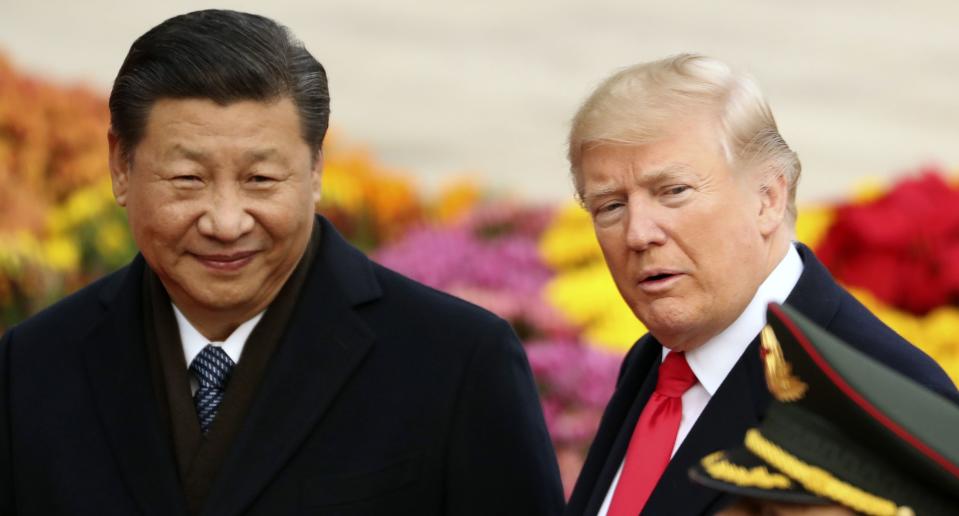Trump's China tariffs aren't crazy
President Trump left heads shaking earlier this month when he announced new tariffs on steel and aluminum imports. Most trade experts see little economic justification for those tariffs, and a bevy of loopholes Trump included could end up exempting many imports, anyway.
Trump is on firmer ground with his plan to impose tariffs on $50 billion worth of Chinese imports. “The goal is to get China to treat U.S. companies in China the way we treat Chinese companies in our market,” a senior Trump administration official told reporters on March 22. A forthcoming government report, he said, “clearly demonstrates there are unfair practices by China as it relates to their efforts to acquire US technology and to favor their companies over US companies.”
Unlike the steel and aluminum tariffs, many trade experts and business leaders agree in principle with that assessment of Chinese behavior. Western firms have complained for years that China routinely steals their trade secrets, through outright theft and hacking, and also through domestic rules that require foreign firms to turn over technological know-how as a condition of doing business in China. Keith Alexander, former chief of the National Security Agency, has frequently characterized such intellectual-property theft as “the greatest transfer of wealth in history.”
IP theft could cost the U.S. economy as much as $600 billion per year globally, with China accounting for most of that, according to the The Commission on the Theft of American Intellectual Property, an independent research group headed by Dennis Blair, who was director of national intelligence under President Obama, and Craig Barrett, former Intel CEO. Trump supposedly fumes about the U.S. trade deficit with China, which was $375 billion in 2017. But that’s not a giveaway to China. Americans get something for that $375 billion—namely, cheap goods that would probably cost more if we bought them from someplace else. Intellectual property, or IP, theft is simply lost wealth, which compounds over time as China uses gained knowledge to become a tougher competitor.

Here’s where there’s disagreement: over whether tariffs are the best remedy for IP theft. The commission headed by Blair and Barrett recommends 18 specific actions to combat Chinese IP theft—but not tariffs. Instead, those experts suggest a kind of carrot-and-stick approach that would deny Chinese access to the U.S. market and parts of the banking system for known violators, while encouraging more interaction with Chinese firms playing by the rules.
Tariffs are essentially a tax added to the cost of imports, and paid by the consumers of those imports. Retailers, consumer groups and corporate groups such as the Business Roundtable oppose new tariffs, because they raise costs on consumers and producers here in the United States. There’s also the likelihood that China will respond in kind and hit U.S. exports to China with tariffs of similar magnitude. That could hurt producers of agricultural products such as soybeans, sorghum and cotton, aircraft manufacturers such as Boeing and some commodity producers.
But Trump, of course, campaigned on tariffs, and he’s obviously determined to get them. The next question is what products, exactly, will bear those tariffs. The office of the U.S. Trade Representative, Robert Lighthizer, is due to publish a list of products to bear the new tariffs by April 6, with a 30-day comment period to follow before they’re finalized. Trump administration officials say the products targeted will most likely be in high-tech industries China has highlighted as key to gaining economic dominance in the future.
A Chinese initiative called “Made in China 2025” identifies 10 industries as key to the nation’s economic future, including information technology, advanced industrial equipment, biopharmaceuticals, green energy and aerospace. So if the Trump tariffs follow that blueprint, they might apply to, say, automotive and airplane components, advanced batteries, machine tools, or advanced electronics. That will be Phase 1. Whether Trump plans it or not, there will probably be many follow-up phases.
Confidential tip line: [email protected]. Encrypted communication available.
Read more:
Rick Newman is the author of four books, including Rebounders: How Winners Pivot from Setback to Success. Follow him on Twitter: @rickjnewman
Follow Yahoo Finance on Facebook, Twitter, Instagram, and LinkedIn
Editor’s Note: This story previously attributed research on the cost of intellectual-property theft to the National Bureau of Asian Research. That research, in fact, comes from the The Commission on the Theft of American Intellectual Property, which the National Bureau of Asian Research fully funds.
